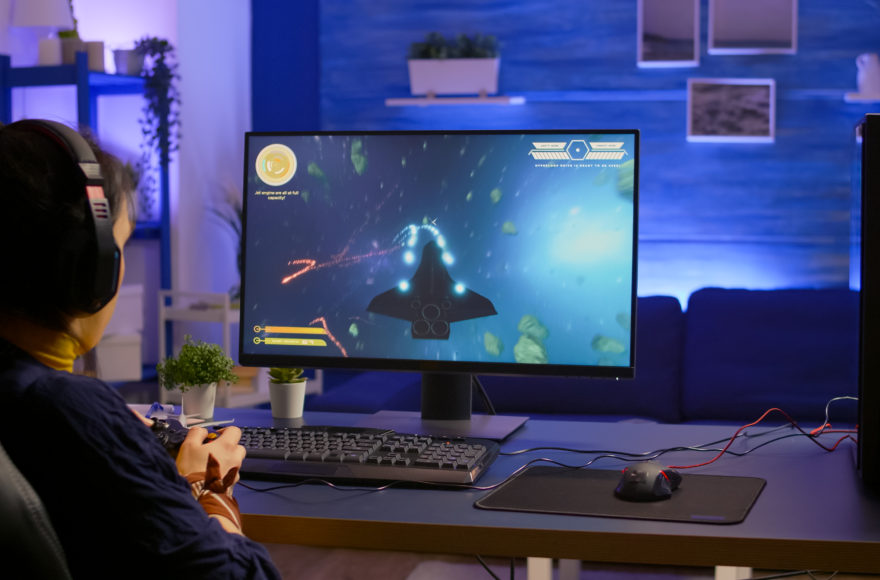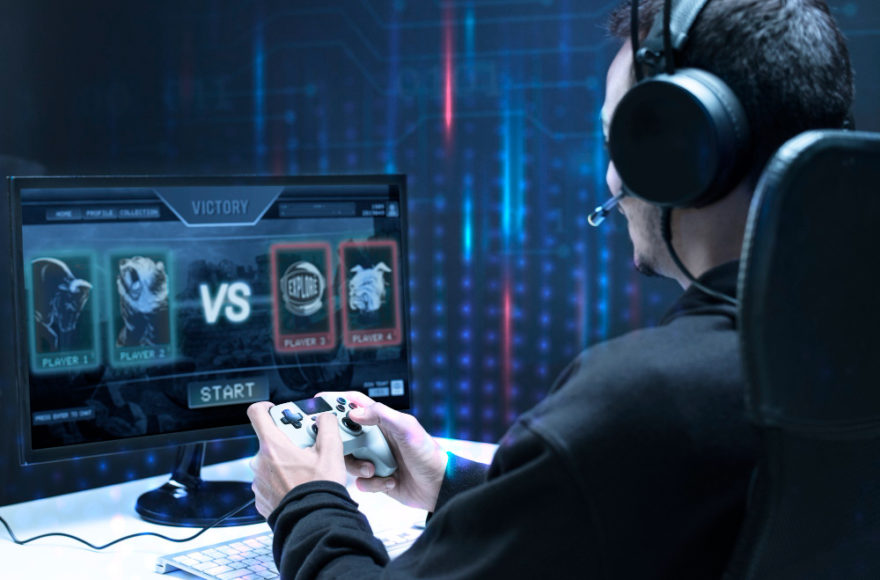Effects of Videogames on your Brain

The effects of videogames on your brain are brain functionality, social, behavioral patterns, and physical impacts. These games are so popular worldwide that it has done nothing but increase exponentially, immersing more and more members of the society in its reach. Although it’s gaining traction in behavioral observation and frequent violent events compelled many to question its effect on those who played it. Playing video games without any restraint can put the person at greater risk of obesity, violent behavior, or aggressiveness. Mostly the effects of video games are seen in children, teenagers who are obsessed with playing videogames.
The recent survey by the Assocham Social Development Foundation(SDF) states that over 82% of teenagers spend an average time of 14-16 hours per week playing computer video games or web portals. Today gaming is taking away time spent playing outdoors, doing some brainy activities that can enhance their growth and benefits in education. You never know when you become a compulsive gamer and display signs of diminished empathy, aggressive behavior, and conflict at school, home, and work. Hence it results in deficient social skills development. Rising addiction to videogames includes easy availability of resources and the absence of parental care. Let us see how it is affecting our brains or what changes it makes to our brain.
Effects of Videogames on Brain
However, all games don’t have a similar impact on human minds; it’s like different games do different things. They can have benefits or detrimental effects, depending on what you are looking for. The reward structure of games is entirely unpredictable. The stress of knowing you might score but not aware when and keeps you in the game. Slowly it becomes one kind of addiction. It’s the same reward construction as a slot machine, and players develop an unshakable faith after playing for a while. So ultimately, this keeps you attached to the game. So you will think of moving further in the play.
A developing adolescent brain will easily get influenced. During this stage of development, the prefrontal cortex, decision-making, and impulse control undergo major reorganization during adolescence. That executive control center is essential for weighing risks and rewards and putting the brakes on the pursuit of immediate rewards favoring more adaptive longer-term goals. The brain area doesn’t reach the highest capacity until age 25 or 30, which may describe why adolescents are more likely to engage in hours of play while neglecting basic needs like food, sleep, and health. Outwardly a mature frontal lobe to draw on, adolescents and teens are less able to weigh negative consequences and curb potentially harmful behavior like excessive videogaming, which can also impact frontal lobe development.
The study has confirmed that just 10–20 minutes of violent gaming raises activity in the brain regions linked with arousal, stress, and emotional reaction, while simultaneously decreasing activity in the frontal lobes associated with emotion regulation and executive control. Researchers say that the dopamine release from gaming is so robust. It shuts down your prefrontal regions.
Learning brains on games
Repeating any physical activity frequently will change your brain. With time and effort, it’s undeniable to get perfection in that specific task. Whether it is executing an enemy in the video game or hitting a baseball in the ground, different parts of your brain create neural pathways when continuous action and thoughts stimulate connections between brain cells. If particular activities are practiced regularly or very often, the neural pathways become even more vital. It is the structural basis of learning. Video games activate reward centers, making the brain more receptive to change. For example, suppose you are playing an action video game. In that case, it will enhance visual capabilities, such as tracking multiple objects, mentally rotating objects, and manipulating them in memory centers of the brain. Such video games will require players to think of an overall plan, act on various tasks simultaneously, and make decisions that have both an immediate and long-term impact. For sure, there may be valuable skills, but excessively practicing the same thing can become a problem. The Result is when kids become so accustomed to multitasking and possess large amounts of information simultaneously, for sure they might face trouble focusing on classroom studies.
If the kid has an aggressive personality, playing violent games will fuel his aggressive nature. It is not that every person playing a video game on a computer or internet has similar effects on their brain. The impacts or changes vary from person to person. If an individual can control and limit their time playing video games and treat it as a leisure activity, the adverse effects of long video gaming sessions would not affect the individual as much, if any. Almost everything in life, activities, substances, and many other things should be handled in moderation.


